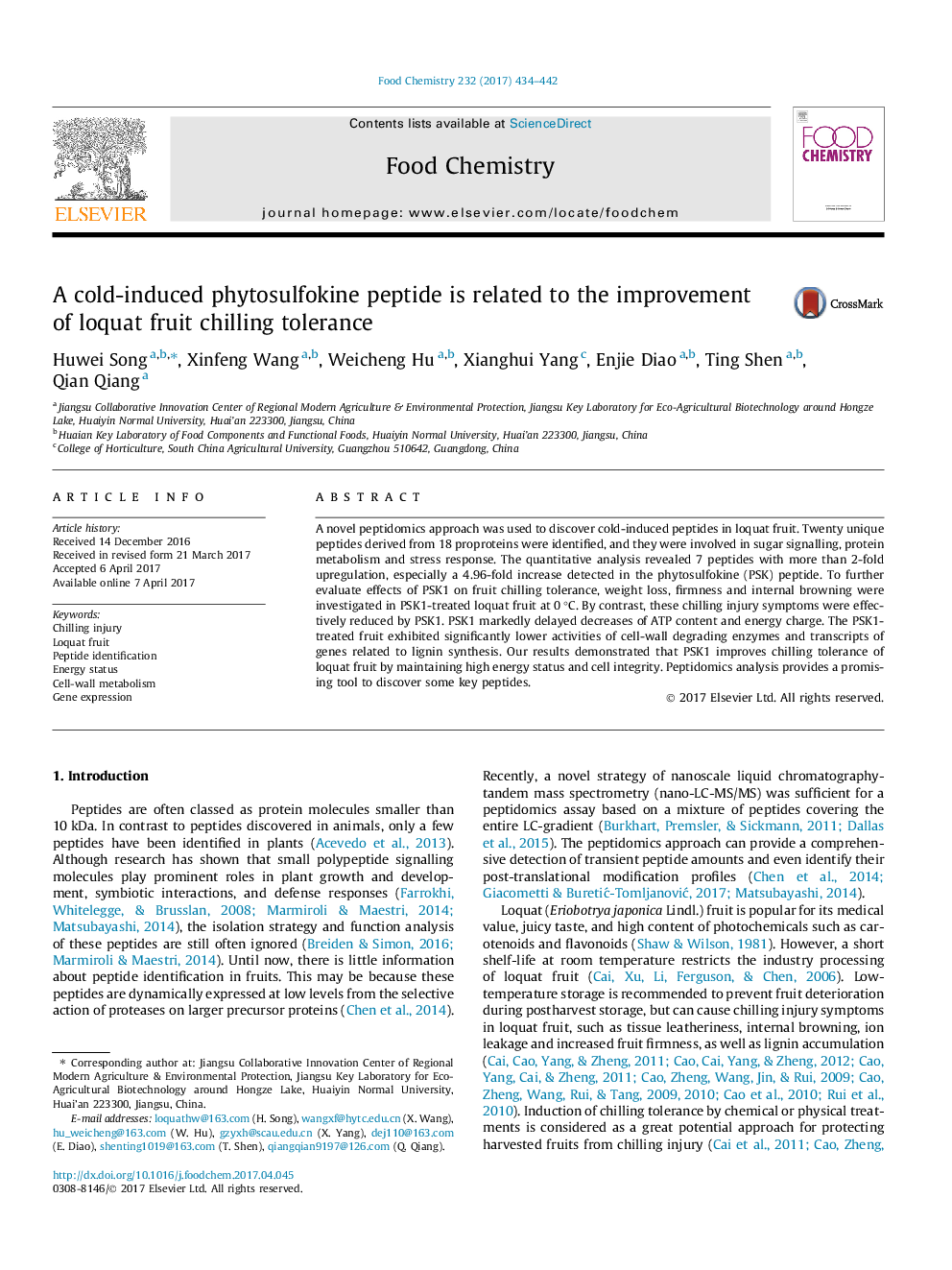| Article ID | Journal | Published Year | Pages | File Type |
|---|---|---|---|---|
| 5133424 | Food Chemistry | 2017 | 9 Pages |
â¢Cold-induced peptides of loquat fruit were identified by the Nano-LC-MS/MS peptidomics.â¢PSK1 treatment significantly improves chilling injury resistance of loquat fruit.â¢ATP content and energy charge were kept in PSK-treated loquat fruit.â¢Activities of cell-wall degrading enzymes were inhibited by PSK1.â¢PSK1 repressed lignin-synthesis according to gene transcripts.
A novel peptidomics approach was used to discover cold-induced peptides in loquat fruit. Twenty unique peptides derived from 18 proproteins were identified, and they were involved in sugar signalling, protein metabolism and stress response. The quantitative analysis revealed 7 peptides with more than 2-fold upregulation, especially a 4.96-fold increase detected in the phytosulfokine (PSK) peptide. To further evaluate effects of PSK1 on fruit chilling tolerance, weight loss, firmness and internal browning were investigated in PSK1-treated loquat fruit at 0 °C. By contrast, these chilling injury symptoms were effectively reduced by PSK1. PSK1 markedly delayed decreases of ATP content and energy charge. The PSK1-treated fruit exhibited significantly lower activities of cell-wall degrading enzymes and transcripts of genes related to lignin synthesis. Our results demonstrated that PSK1 improves chilling tolerance of loquat fruit by maintaining high energy status and cell integrity. Peptidomics analysis provides a promising tool to discover some key peptides.
